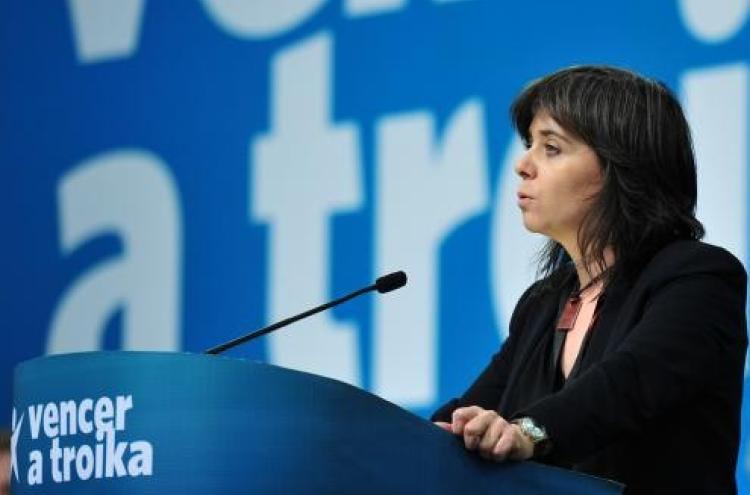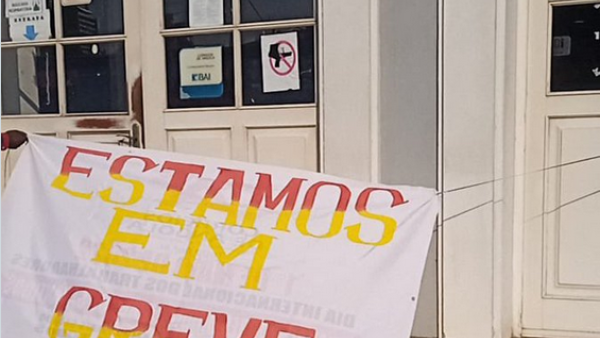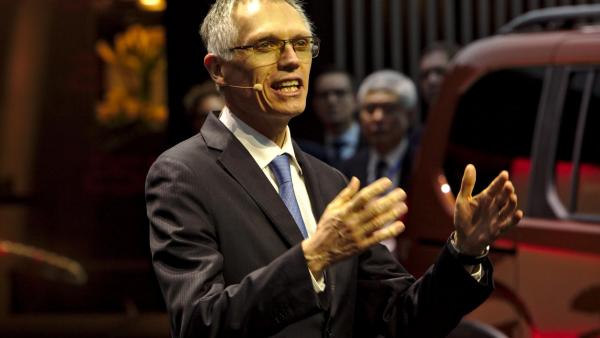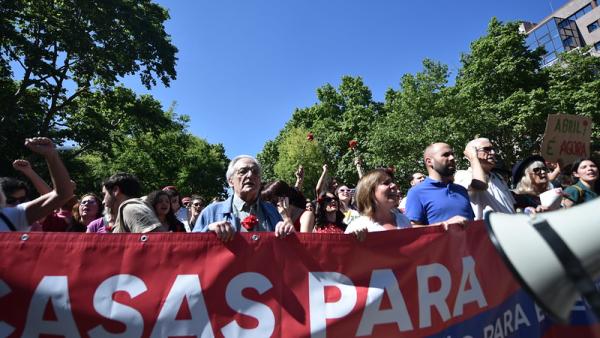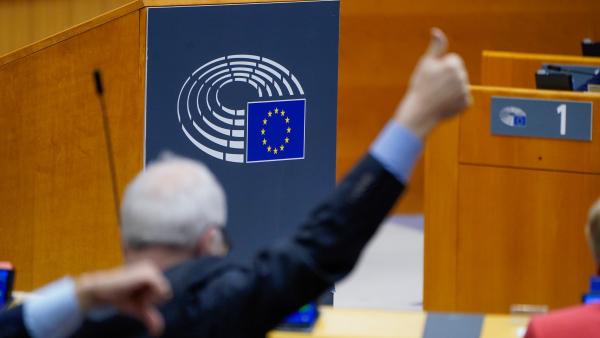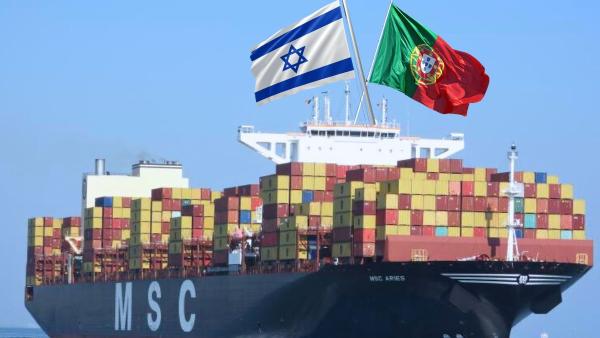Catarina Martins, the Left Bloc's spokeswoman spoke this Sunday in Berlin in a meeting organised by Die Linke, where she highlighted that "we do not have to choose between neoliberals and the far right. We can choose to regain democracy and workers’ rights. The right has nothing to offer but fear and hate. The left builds its response in solidarity, with hope, without fear".
"I stand here with you in solidarity. The problems in my country, Portugal, and here in Germany may be different, but we’re all victims of a neoliberal European Union that attacks workers’ rights to protect the big banks and corporations", said Catarina Martins.
The problems in my country and here in Germany may be different, but we’re all victims of a neoliberal European Union
In Portugal the average wage is half the German minimum wage. The Portuguese net minimum wage is under 500€ a month. "10% of workers live in poverty. Youth unemployment is at over 25%. More than 70% of pensions are lower than the minimum wage. One in five people live in poverty. One in three children live below the poverty line", explained Catarina.
"Portugal is also one of the European countries with the highest retirement age. Workers in Portugal work for the longest hours in Europe and for more days a year than the average. In case you are wondering, the Greeks work for even more hours", she continued.
"What is happening in Europe is the repetition of an old lie, or of the most common example of misdirection: when the richest 1% is getting richer and 99% of the population is getting poorer, everyone blames those who are even poorer - southern Europe, migrants, refugees and minorities - as a way of preventing people from noticing who is actually stealing from us. Wave to the south of Europe while the financial capital is assaulting you right here".
What is happening in Europe is the most common example of misdirection: when the richest 1% is getting richer and 99% of the population is getting poorer, everyone blames those who are even poorer
Catarina continued, adding that "what is happening in the European Union is a lie. We were all promised a European Union of peace and development. But now we know that that promise is a mirage. Even the countries that once believed and worked to fulfil the promise of a European Union of solidarity and cohesion know that the European Union today is partly to blame for the crisis. We must question our common institutions. Not because we don’t believe in solidarity or cohesion, not because we’ve given up on the objectives of peace and development, but precisely because we feel solidarity, we want cohesion, development and peace".
"After the financial crisis of 2007-2008, governments around the world promised new rules to control banking systems and protect citizens. However, instead of this, they created new rules to limit democracy and protect the financial sector", she criticised.
"The crisis of public debt that Portugal faces, along with Spain, Italy and Greece, was created to save banks and was the perfect excuse to impose a rapid neoliberal process in European countries. Privatisation, liberalisation, deregulation, weakening of the welfare state, attack on labour rights, precarity. None of the liberal politics that were imposed solved any problems. Public debts are rising in the European periphery because austerity created an economic crisis that took away workers’ rights and lowered wages. And when wages are lowering in one European country, there is pressure to lower wages all over Europe", explained Catarina Martins.
The crisis of public debt was created to save banks and was the perfect excuse to impose a rapid neoliberal process in European countries. Privatisation, liberalisation, deregulation, weakening of the welfare state, attack on labour rights, precarity.
"Portuguese low wages are pushing German wages down. Not because that’s the worker’s choice, or even an economic necessity in Portugal or in Germany, but because the financial capital needs low wages to regain its profit. Education, public health and public services are becoming more and more fragile, not because there’s no money, but because that’s where the money is and the international banks and corporations want to have it".
Catarina caried on, saying "when treaties and European rules take democratic choices away from our parliaments and give unelected institutions power, its not because each national decision could attack European solidarity - look at all the pro- fascist regimes the European Union accepts as partners - it’s because popular sovereignty, democracy, is an obstacle for the neoliberal European project. Neoliberals hate democracy and that’s why they fear workers’ rights and organisations".
Catarina described how after Portugal 5 years of austerity, cutting wages and pensions, privatising strategic sectors and public companies, deregulating labour law and applying neoliberal politics, Portugal "couldn’t tackle the problem of public debt or deficit and couldn’t even solve the banking problem. The economy plummeted and unemployment caused the biggest wave of emigration from the country since the fascist dictatorship and the colonial war of the 1960s. However, through all of this, European institutions and the German government used Portugal as a good example".
The debt problem was not created by Portugal alone, but by a tragic European response to the financial crisis and by a monetary union that was designed to be a one way highway of capital from the periphery to the centre
After the 2015 elections that allowed a minority government supported by the left into parliament, there was a small recovery of wages and pensions, the privatisation programme was stopped, some poverty-fighting measures were implemented, the economy recovered a little, some jobs were created and even the deficit has lowered. "As of that moment European institutions started to say Portugal was a problem", said Catarina.
"Of course, our public debt problem is growing and will continue to grow as long as we continue to postpone debt restructuration, because the debt problem was not created by Portugal alone, but by a tragic European response to the financial crisis and by a monetary union that was designed to be a one way highway of capital from the periphery to the centre".
"I am aware that German workers don’t feel the benefits of it because this transfer of wealth is not from Portuguese workers to German workers. It’s from all workers to the financial capital. So, when Mr Schauble attacks Portugal, beware. The problem for Germany or Europe is not the Portuguese public deficit. He is just using misdirection so that your attention is taken away from the Deutsche Bank and the real threats to the German and European economies", added Catarina.
We do not have to choose between neoliberals and the far right. We can choose to regain democracy and workers’ rights. The right has nothing to offer but fear and hate. The left builds its response in solidarity
"When the right and far right tells you that refugees are terrorists and a threat to our freedom and safety, beware. The real threats to peace are the militarization of Europe and war. The real threat to freedom and safety is reactionary policies that deny equal rights to women and to minorities. And when the social democrats and the conservative right tell us that if we attack the European treaties, or the European Central Bank and the euro rules, we’re just like the far right, they’re just trying to make you believe that history is over and that austerity is the best we can aspire to" said Catarina Martins.
"We do not have to choose between neoliberals and the far right. We can choose to regain democracy and workers’ rights. The right has nothing to offer but fear and hate. The left builds its response in solidarity, with hope, without fear. As Rosa Luxemburg taught us, there’s a new world to be built", concluded Catarina.
Catarina spoke in a tribute to Rosa Luxemburg, "a woman whose life inspires us all, a feminist who lead the way for us, an anti-war militant, a Marxist whose thoughts and struggles shaped and strengthened leftist politics".
